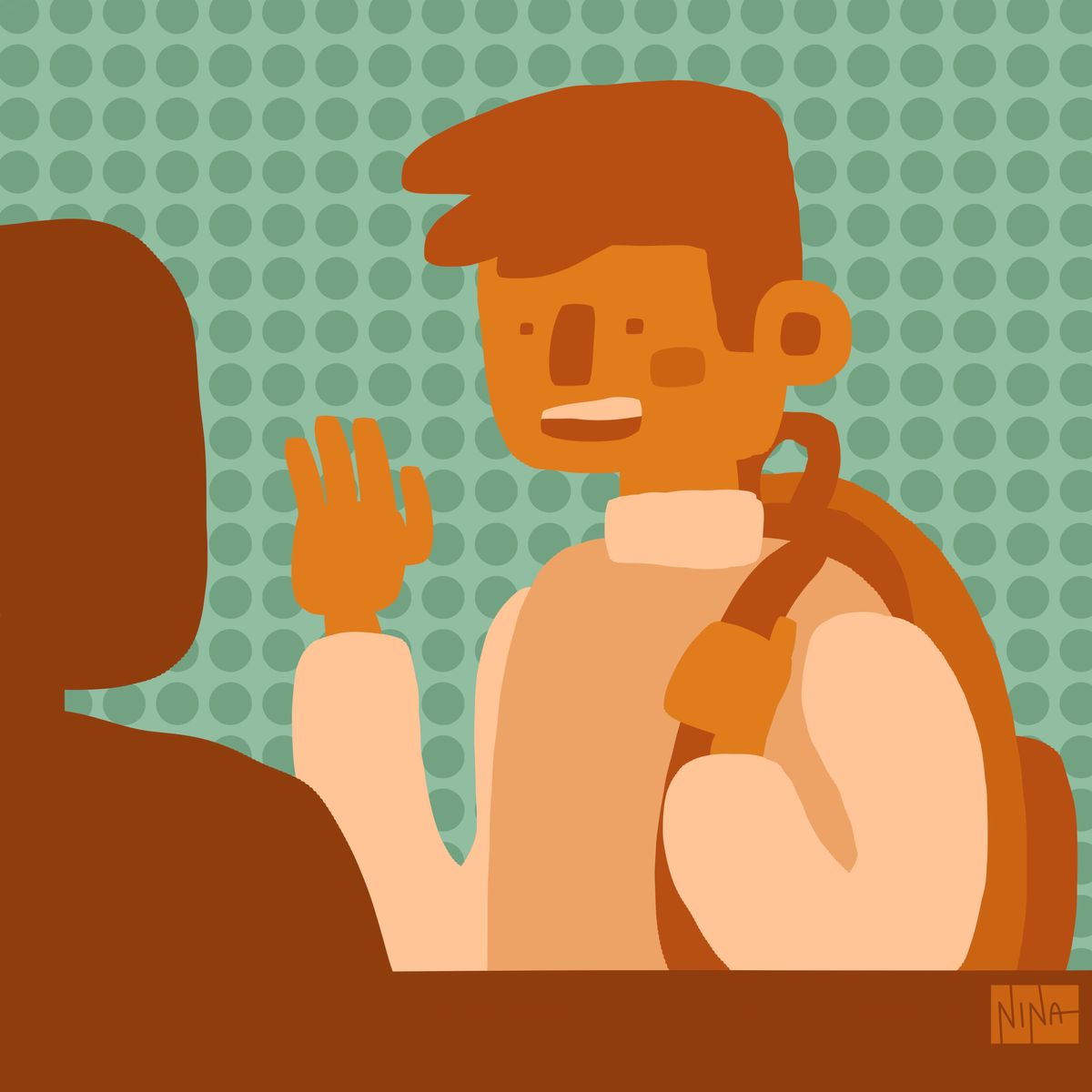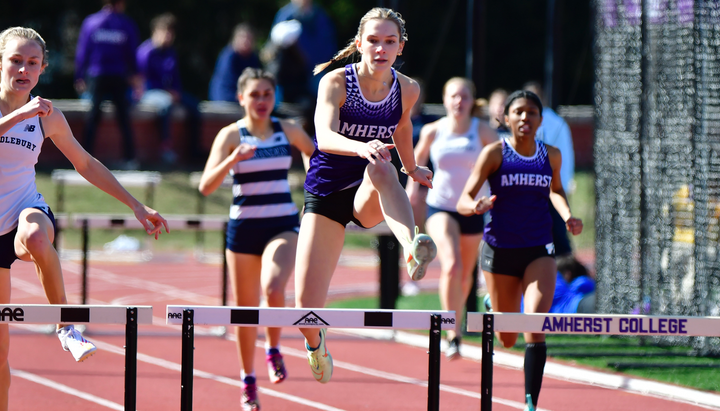People Like You More Than You Think
Isaiah Doble ’25 presents a toolkit for a friendlier campus environment, combating campus loneliness with strategies from enthusiastic greetings to sprinklings of compliments.

For the first few months that I knew my best friend at Amherst, I thought he hated me. I am not exaggerating. Whenever I caught him typing on his computer in our dorm’s second-floor common room and loudly greeted his presence, he would return, at best, a hesitant smile and wave, or, more frequently, a glowering stare and an inaudible response. I am not sure what kept me from giving him up; maybe I saw acquiring his friendship as a feat to conquer, the social equivalent of that one impossible boss in “Undertale.” But while I have yet to beat Sans, I did win my now-best-friend over with my stubbornly vivacious greetings, a couple of big-group nature walks blasting 2010s pop hits on a speaker, and funny socks for a birthday gift. It turned out that he was just quiet — he didn’t hate my guts (or, at the very least, he eventually learned how to tolerate me).
I saw him as a special case. More often than not, when I meet new people on campus, I assume they do not like me — that they actively do not enjoy my company — and I tend to keep my distance. I see their stares ahead while I pass them on the quad, our short and superficial small-talk exchanges in line at Val, and our awkward glances in group conversations as indicators that they most certainly do not want to get to know me more, that they are tolerating my presence but would rather be somewhere else. As it turns out, I am not alone in this feeling.
A new study revealed a simple yet revolutionary finding: We significantly underestimate the amount that other people like us. Psychologists term this the “liking gap,” which describes the consistent difference between how much we perceive others as liking us within social interactions and how much they actually like us. If you feel like half of the Amherst campus actively dislikes you, you are not alone. You are probably just very wrong.
This is a pretty important finding, considering that a fairly recent survey found that more than three out of four Amherst students report experiencing extreme loneliness while on campus. This is significantly higher than the national college student average, which is a little more than half.
How can we use this discovery to combat campus loneliness and foster a campus environment that encourages the building of fulfilling relationships? As a fellow student, I offer a couple of my own thoughts and encourage you to form your own additional conclusions while reflecting on this information.
First, let’s stop buying into the culture of social coldness. If we continue to interact under the illusion of the liking gap, we, as a campus community, will perpetuate the false norm that most Amherst students are not interested in socializing. As this belief is evidently wrong, continuing to perpetuate it will only hinder our willingness and ability to interact socially. I think it is safe to say that most of us would love to make a good new friend.
Also, try waving enthusiastically. What I mean by this is: Put good effort into communicating fondness or desire to get to know someone better, whether that means sprinkling them with compliments, giving them an exaggeratedly friendly wave or warm hug (with their consent, of course), asking them to grab a meal one-on-one sometime, or anything else that exhibits your genuine liking and interest.
While bridging the liking gap will require changing our mindsets to recognize that people like us more than we think they do, we can also diminish these misunderstandings from others by changing the way we interact with others. Let’s overcome our initial social worries and put more effort into our gestures toward those that we wish to get to know better, even if they at first seem uninterested. Doing so might help us overcome any liking-gap-related misconceptions they might hold and make them feel more comfortable reciprocating the feelings and willingness to build a friendship. Wouldn’t you be interested in befriending someone whose entire day seems to brighten when they see you?
I’m not trying to argue that these ideas or shifts in behavior will abolish campus loneliness or feelings of isolation, but they may empower us to create a warmer campus environment in which we feel more easily able to connect with others and build meaningful relationships. Knowing this information about the liking gap helped me feel more comfortable — both in the relationships I already have on campus, and with the ones I want to build. I hope the same is true for you. We may not necessarily meet our new college best friend every time we overcome the liking gap, but we may spark a wonderful connection that we might have otherwise passed by. Let’s bridge the liking gap, one enthusiastic greeting at a time.
A final disclaimer: If you see me manically smiling or waving at you as I walk by, you now know why.
If you have thoughts on this or any of our articles, comment below or send us a letter by using this form or emailing [email protected].




Comments ()